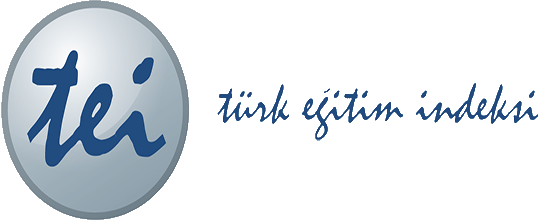ASPECTS OF HAZARD ANALYSIS AND CRITICAL CONTROL POINTS IMPLEMENTATION INTO UKRAINIAN INDUSTRY IN CONTEXT OF RATIONAL WATER RESOURCES USE
DOI:
https://doi.org/10.32689/2617-9660-2018-1-1-110-119Keywords:
water resources, industry, HACCP, certification, rational water resources use.Abstract
The issues of the essence of water certification for its consuming at industrial enterprises, as well as food enterprises, have been investigated. Problematics of HACCP implementation in modern Ukrainian circumstances has been investigated, the necessity of system management of water resources (as an element of food products) quality and safety has been stated. The analysis of the existing conditions for developing and implementing such systems in Ukraine has been stated. The main approaches for the HACCP implementation have been investigated, the economical evaluation of the effectiveness of this system implementation to increase enterprises’ competitiveness and to increase their financial indexes has been conducted. We analyzed the degree of HACCP system implementation influence on the mechanism of rational water resources use. We determined the key problematics of industrial enterprises water use, concerning enterprises connected with food production and we also determined the ways of solving these problems by implementation of the mechanism of pre-conditional programs implementation. We suggested using of this methodic for following the direction of quality indexes of water improvement while this water is used in the food industry. We determined the strategy of increasing concurrency of enterprises as a result of water quality improvement; and also improvement of financial indexes by decreasing ecological payments. We proposed methodic for the critical control points determination and also determination of the according to these points decisions, which gives an opportunity to check put the controlling events to decrease or to annulate dangerous factors at some technological processes. We also used the experience of HACCP implementation abroad in context of rational water resources use. We compared technical possibilities for the perfects system functioning at Ukrainian enterprises and enterprises abroad. The proposed mechanism for including HACCP to the system of rational water resources use of industrial enterprises is of a particular scientific and practical interest. We investigated structure of managing phases of implementation of this system to Ukrainian enterprises. The economical appropriateness of this system implementation has been ordered.
References
Makarenkova G. Yu., Zakharova A. N. (2005). Mirovoy opyt vnedreniya sistemy KhASSP pokazal… ili chto ostaetsya za kadrom pri razrabotke sistemy upravleniya kachestvom [The world experience in the implementation of the HACCP system showed ... or what remains behind the scenes when developing a quality management system]. Vse o myase — Everything about Meat, 1, 48–51 [in Russian].
Nakaz Ministerstva ahrarnoi polityky ta prodovolstva Ukrainy pro zatverdzhennia vymoh shchodo rozrobky, vprovadzhennia ta zastosuvannia postiino diiuchykh protsedur, zasnovanykh na pryntsypakh systemy upravlinnia bezpechnistiu kharchovykh produktiv (NASSR): vid 01.10.2012, № 590 [Order of Ministry of Agrarian Policy and Food of Ukraine on Approval of Requirements for the Development, Implementation and Use of Standing Procedures Based on the Principles of Food Safety Management Systems (HACCP) from 01.10.2012, № 590]. (n.d.). zakon.rada.gov.ua. Retrieved from http://zakon.rada.gov.ua/laws/ show/z1704-12 [in Ukrainian].
DSTU ISO 22000: 2007. Systemy upravlinnia bezpechnistiu kharchovykh produktiv. Vymohy do bud-iakykh orhanizatsii kharchovoho lantsiuha [DSTU ISO 22000: 2007 Food Safety Management Systems. Requirements for any food chain organization]. (2007). Kyiv: Derzhspozhyvstandart Ukrainy [in Ukrainian].
Plakhotin V. Ya., Tiurikova I. S. (2007). Rekomendatsii shchodo rozrobky ta vprovadzhennia system upravlinnia bezpechnistiu kharchovykh produktiv na vyrobnychykh pidpryiemstvakh spozhyvchoi kooperatsii Ukrainy [Recommendations on the development and implementation of food safety management systems at manufacturing enterprises of consumer co-operation of Ukraine]. Kyiv: Vydavnytstvo “Ukooposvita” [in Ukrainian].
Zapolskyi A. K. (2005). Vodopostachannia, vodovidvedennia ta yakist vody [Water supply, drainage and water quality]. Kyiv: Vyshcha shkola [in Ukrainian].
Stehnei M. I., Irtyshcheva I. O. (2013). Derzhavno-pryvatne partnerstvo yak mekhanizm pidvyshchennia mizhnarodnoi konkurentospromozhnosti v umovakh hlobalnykh vyklykiv [Public- private partnership as a mechanism for increasing international competitiveness in the context of global challenges]. Visnyk Khmelnytskoho natsionalnoho universytetu – Bulletin of the Khmelnytsky National University, 5, 272–275 [in Ukrainian].
Mayes T., Mortimor S. (Eds). (2005). Effektivnoe vnedrenie NASSR [Making the Most of HACCP: Learning from Others’ Experience]. Saint Petersburg: Professiya [in Russian].
Systema HACCP [HACCP system]. (2003). Lviv: NTTs “Leonorm-Standart” [in Ukrainian].
Bambura O. (2011). Fasovani pytni vody u normatyvnykh dokumentakh Yevropy, krain SOT ta Ukrainy [Packaged drinking water in normative documents of Europe, WTO countries and Ukraine]. Voda v kharchovii promyslovosti — Water in the food industry: Proceedings from all-Ukrainian scientific and practical conference of young scientists, postgraduates and students (p. 9). Odesa: ONAKhT [in Ukrainian].
Korotysh O. O. (2011). Z pytan novitnikh napriamkiv pidhotovky ta metodiv ochyshchennia vody [On is sues of new preparation directions and water treatment methods]. Voda v kharchovii promyslovosti — Water in the food industry: Proceedings from all-Ukrainian scientific and practical conference of young scientists, postgraduates and students (p. 49). Odesa: ONAKhT [in Ukrainian].











